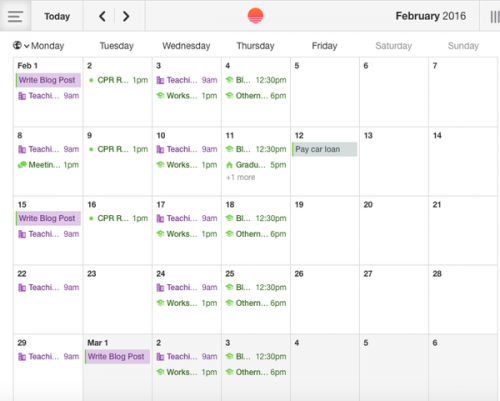
Preparing for Summer as a Grad Student

My mom recently asked how grad school was going, and while “okay” or “good” or “great” are all fine and appropriate answers for how I’m feeling as I near the halfway point for my degree, I told her that I can’t remember being this excited for summer since I was in grade school. Of course, I had to clarify, as I’m loving reading, writing, and learning from my cohort and professors. While the joy of summer break used to come from the very simple pleasure of not needing to be in class eight hours a day, five days a week, my eagerness for the semester to end as a grad student is to fill that time with reading and writing.
That’s not to say that there isn’t time to read and write during the semester—it’s why we’re here, after all—just that I know I can look forward to a day of waking up early, getting coffee at a café, and writing or revising poems whenever I need it instead of when I can make time for it. This past weekend, I was able to make time for some writing and found my mind wandering back to that topic of dread: the thesis.

A typical shot of my Sunrise calendar, without extra readings or other events mixed in. Those weekends might look empty, but they’re usually filled with the work that pays my rent.
When I talk about the thesis with other first-year students, I get looks. Writing a book is a pretty big deal, and I know that with the stress of classes and teaching, many first-year students don’t even want to think about it. But because it’s due in a year, and starting thinking about it at least puts me a little bit closer to starting writing it, which is almost on the way to finishing it. So after sketching out a few poems for workshop, I started planning a rough outline of my thesis so that I have a to-do list for those summer writing days.
It’s never too early to start looking for themes and ideas in your poetry that could guide a thesis, particularly ones that your subconscious might be sneaking in. Noticing those kinds of trends can make it a bit easier to start writing toward a book and even help you generate an outline of poem ideas that serve as a jumping off point for a poem or a focus for a few couplets or stanzas.
